Sex Pistols - Dread Meets Punk Under Heavy Discipline
by David McNamee
published: 20 / 1 / 2002
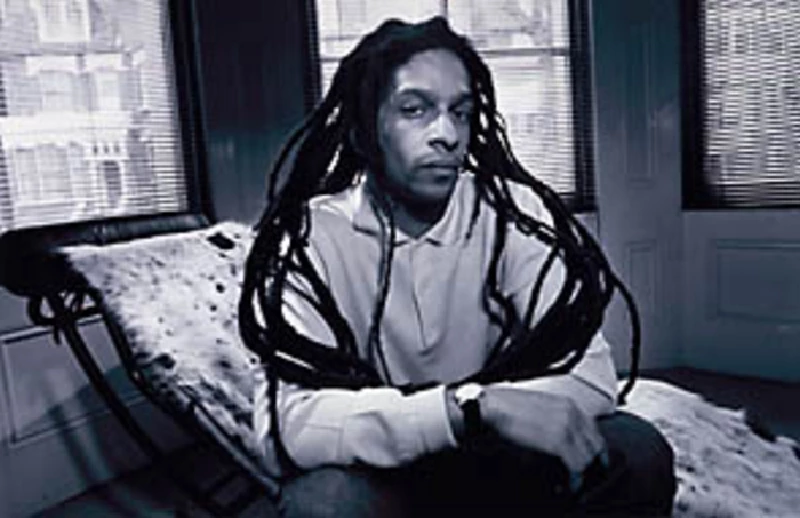
intro
By the mid-seventies the establishment had managed to alienate its own white youth. It didn’t have to try hard to alienate me since I was a first generation British born black of Jamaican descent and already well pissed off. The popular music of the time
By the mid-seventies the establishment had managed to alienate its own white youth. It didn’t have to try hard to alienate me since I was a first generation British born black of Jamaican descent and already well pissed off. The popular music of the time no longer spoke for the people, well toany of my mates anyway. We didn’t know where California was, much less able to check into a goddamn hotel! We were more concerned with things like how we were gonna live and furthermore how we gonna do it together? At least I had a soundtrack to ease the pressure. But in this darkness some bright spark came p with a thing called Punk Rock and its fair to say our lives would never be the same.” So says Don Letts, the legendary punk rock documenteer, filmmaker and occasional musician (“In the group Big Audio Dynamite I ‘played’ keyboards live with stickers on the keys so that I could work out what to play”), who, in 1976 London, was also a peripheral figure on the freshly imported new reggae scene. In 1975 Letts was running a Sex-style shop, ‘Acme Attractions’, selling electric blue zoot suits and shocking pink peg trousers to angry young proto-punks. He’d spend his days behind the counter with a couple of spliffs and an unapologetically loud sound system blasting out intense dub reggae. It wasn’t long before he began to notice that people were coming to the shop as much for the strange, simmering music as they did the clothes. The ‘cool kids’ would oscillate between Acme and Malcolm McLaren and Vivienne Westwood’s shops Too Fast To Live, Sex and Seditionaries. They were bored, disaffected white youth looking for a cultural home: they found it in Westwood and McLaren’s confrontational fashion, and in the dense, urban soundtrack of dub hanging over Letts’ shop like thick ganja fog. It was Acme Attractions acountant Andrew Czechowski who discovered the HQ for this bubbling new underground. It was in the basement of an old gay club in Neil Street W1, and it was called The Roxy. Letts, with his finger digging firmly into the pulse of the times, became the natural choice of DJ. His mission was to play angry politicised tunes with intense insurrectionary soundbites acting as a call to arms to all those with a grudge against the system. Punk, in other words. Only problem is: punk hadn’t been invented yet. Sure, there were early efforts from New York Dolls, The Stooges, Television, Velvet Underground and MC5; but in multi-racial West London, American revamped Rock n Roll carried little cultural currency. Instead, Letts armed himself with a single record deck, a few chunkily-rolled joints and got the young punks skanking to the sound of King Tubby, Big Youth, Horace Andy, Augustus Pablo, Junior Murvin and Lee Perry. The Roxy became a touchstone for ‘those in the know’, some of them, friends of Letts, were talking about forming bands. Paul Simonon, Joe Strummer, Johnny Rotten and Sid Vicious (although they were just plain John Lydon and and John Beverley back then) and future members of bands like The Slits, The Adverts or Generation X, mingled with herb-wielding Rastafarians and of-the-time luminaries like Chrissy Hynde, Bob Marley, Patti Smith, Debbie Harry and Johnny Thunders. “We’re talking serious cultural exchange,” Letts emphasises. “We became closer by reveling in our differences, not by trying to be the same. It was a culture that spoke in a currency that they [the punks] could identify with. Besides the ganja and sheer dread that a good reggae bass line can conjure up it was the anti-fashion fashion, its rebel stance and, importantly, the fact that reggae was a kind of musical reportage talking about things that mattered, providing a soundtrack for the situation. The third world DIY approach to creating the reggae sound was something else the punks could relate to, as most had no formal training in music.” And it was punk in turn which encouraged Letts to make his own DIY contribution to the new subculture. “It seemed everyone was picking up guitars and trying a thing and soon the stage was full up so I picked up a super-8 camera. Punk energy made you feel like you had to get involved or you’d be left behind.” Letts began filming sets by embryonic London punk groups who “looked great but played shit, with a few obvious exceptions”, the result was Punk Rock Movie – the movements own celluloid bible. It wasn’t till the beginning of punk’s demise though that Letts got to Jamaica for the first time: “When the Pistols broke up Rotten decided to escape the media frenzy by accompanying Richard Branson on a trip to the home of reggae,” Letts explains of the inception of Virgin’s ‘Frontline’ reggae label, of which Rotten was the Head of A&R. “I got a phone call from Rotten asking me if I wanted to join him on the trip. Fuck yeah. I guess John thought me being black and Jamaican, sort of, meant he’d be in good hands. Little did he know that the closest I’d been to J.A. was watching The Harder They Come at the Classic cinema in Brixton. That trip was a trip.” Indeed. In amongst the gigantic intake of free weed provided by hopeful future potential signees, once word got round the island that three British men with a van full of money were looking to sign up anything with a bass line, Jamaica’s premiere reggae talent (save for Marley and the Wailers) descended. The journey prompted some strange cultural exchages. In a hilarious attempt to impress Lydon, Branson persuaded the inimitable Lee ‘Scratch’ Perry to hire an ensemble of session musicians to toast and skank their way through reggae versions of the Sex Pistols’ 'Anarchy In The UK' and 'Holidays In The Sun'. The movement’s de facto leader, Bob Marley, was less impressed however. On catching sight of Letts’ Westwood bondage trousers he was moved to exclaim in horror “what ya deal with Don Letts dem nasty punk rockers, you look like a bloodclaat mountaineer!” Nevertheless, after Letts had acquainted Marley with “the real scene as opposed to the Daily Mirror version”, the reggae superstar recorded Punky Reggae Party with Lee Perry, a testament to the mutual influence and respect of the two, superficially opposed, cultures. Despite the cultural affiliation though, there was initially little evidence of musical referencing in either scene. Punk was still a very white, very working class movement motivated by confrontation and reflecting a chewed-up, spat out interpretation of British and American guitar rock music. The Slits experimented with the texture and sound of punk by incorporating excellent bass heavy dub to their spitting pro-feminist rage, and of course, The Clash were in there covering Junior Marvin’s 'Police & Thieves' on their seminal debut and subequently referencing dub’s revolutionary sonic armoury and socio-cultural commentary on every release from 'White Man In Hammersmith Palais' to 'London Calling' to the genre-melding 'Sandinista'! However, it wasn’t til the post-punk scene in the early Eighties tore up the musical rulebooks that dub really found its place in punk’s musical textbook. Again, John Lydon was one of the first on the scene with his post-Pistols incarnation PiL. Influenced in equal measure by the metronomic sincerity of krautrock and the haphazard, innovations of dub, PiL took their cue from artists like King Tubby, who turned the recording studio into an instrument in itself. They were joined by The Pop Group, Pere Ubu, Alternative TV, Cabaret Voltaire, DAF, A Certain Ratio, Scritti Politti, Gang Of Four – bands emerging from a punk background, but who were dissatisfied with the musically stagnant cesspool of British pub rock. Using rough editing techniques they instead explored the tape-delay echoes, disorientating FX, spring reverbs and thick analogue tape sound popularised by dub and roots reggae, and used it as a vehicle to vent their Gramscian class protests in a deconstruction of accepted musical convention. Post-punk was synthesised as a critique of rock n roll, a sort of music within a music. Dismayed by how punk’s original promise had burnt itself out in overexposure and self-parody, the post-punkers wanted an aesthetic revolt, as well as social reform. Looking for a musical language that perfectly embodied these concepts they hit upon Rasta and dub as the perfect foil. “Rasta offered a ready-made cosmology that meshed the political, the spiritual and the apocalyptic and it helped you define your enemies,” claims journalist Vivien Goldman. Despite some incongruity between Rasta’s religiously-defined, Old Testament sentiments and the atheistic, anti-establishment pretext of post-punk, common ground was gained in their shared utopian conviction and, of course, universal language of the bass. Mark Stewart of The Pop Group, one of the first British groups to attach punk’s slicing, angular attack to funk-propelled rhythms and dub-esque production values, notes the contradiction. “With the roots worldview, the logic was often questionable, but the feeling of uplift was undeniable. Going to sound systems and witnessing that yearning for a better world, it mad my hairs stand up on end.” “Reggae has become part of the very fabric of popular culture having permatated contemporary music. Language, fashion, even people’s attitudes,” claims Don Letts. “The white kids on the street are more likely to know some Bounty Killers lyrics before they could quote some Shakespeare. “As for what I learned from my association with the punks besides the fact that we became closer by understanding our differences and not by attempting to be the same. Well I learned to make my problems my assets and that a good idea attempted is better than a bad idea perfected.”
Picture Gallery:-
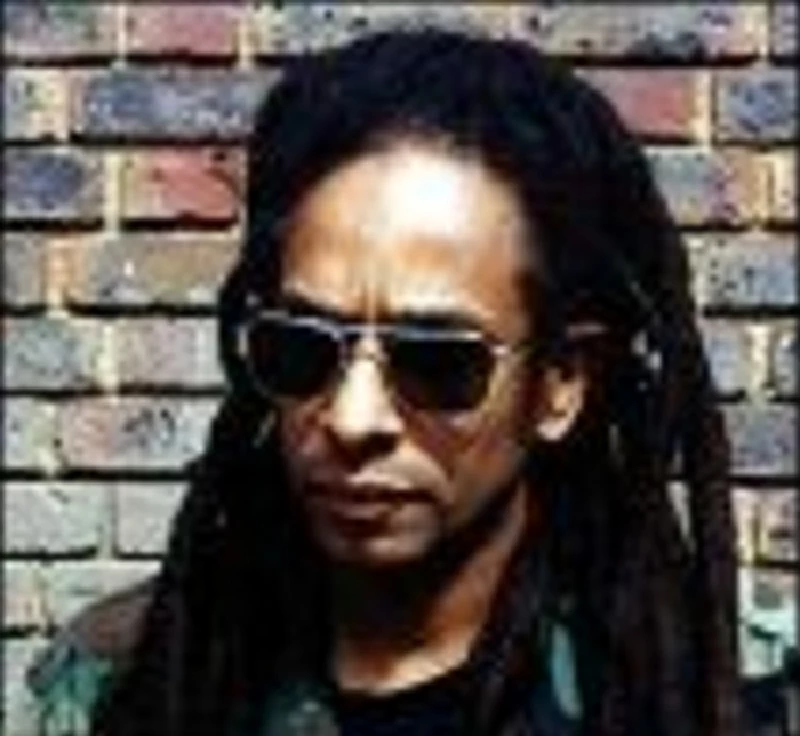
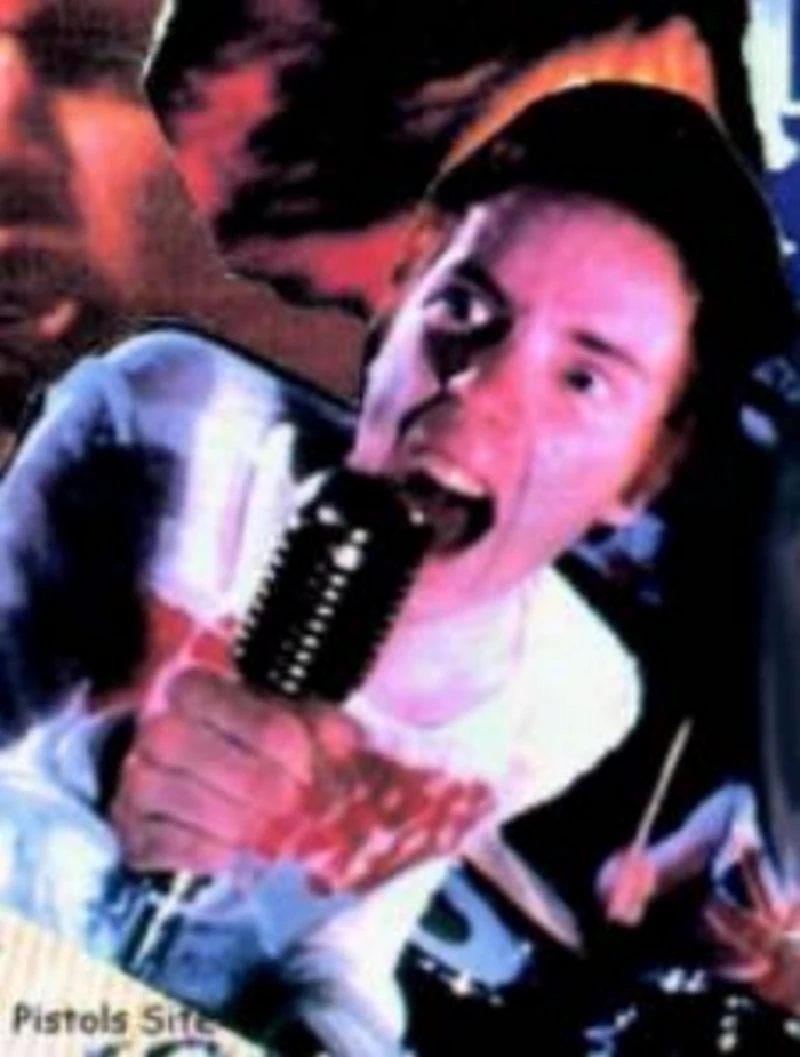
interviews |
|
Interview (2004) |
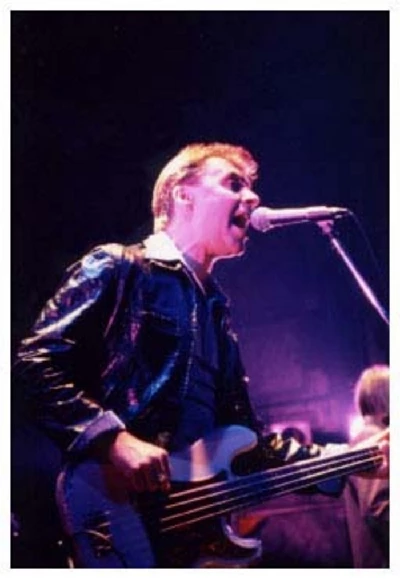
|
| The original bassist with the Sex Pistols, Glen Matlock since then has run a successful solo career and also rejoined the band for their recent stadium tours. He speaks to John Clarkson about his long career, and the Sex Pistols' abiding legacy |
live reviews |
|
Hammersmith Apollo, London, 2/9/2008 |
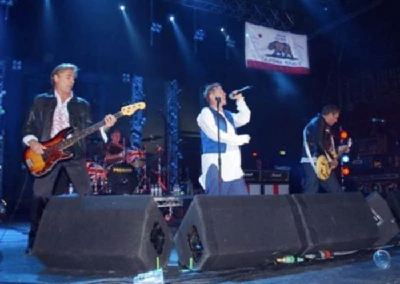
|
| At the end of a summer of playing festivals, Anthony Middleton finds that the reformed Sex Pistols thirty years on still having a lot to offer at a one-off gig at the Hammersmith Apollo in London |
| Brixton Academy, London, 9/11/2007...10/11/2007 |
| London Crystal Palace, 27/7/2002 |
most viewed articles
current edition
Carl Ewens - David Bowie 1964 to 1982 On Track: Every Album, Every SongArmory Show - Interview with Richard Jobson
Colin Blunstone - Thalia Hall, Chicago, 16/7/2025
Bathers - Photoscapes 1
Visor Fest - Valencia, Spain, 26/9/2025...27/9/2025
John McKay - Interview
Editorial - July 2025
Robert Forster - Interview
Loft - Interview
Billie Eilish - O2 Arena, London, 10/7/2025
previous editions
Heavenly - P.U.N.K. Girl EPManic Street Preachers - (Gig of a Lifetime) Millennium Stadium, Cardiff, December 1999
Oasis - Oasis, Earl's Court, London, 1995
Beautiful South - Ten Songs That Made Me Love...
Trudie Myerscough-Harris - Interview
Pixies - Ten Songs That Made Me Love...
Simon Heavisides - Destiny Stopped Screaming: The Life and Times of Adrian Borland
Paul Clerehugh - Interview
Doris Brendel - Interview
Prolapse - Interview
most viewed reviews
current edition
Amy Macdonald - Is This What You've Been Waiting For?Sick Man of Europe - The Sick Man of Europe
Alice Cooper - The Revenge of Alice Cooper
Phew, Erika Kobayashi,, Dieter Moebius - Radium Girls
Davey Woodward - Mumbo in the Jumbo
Lucy Spraggan - Other Sides of the Moon
Blueboy - 2
Cynthia Erivo - I Forgive You
Lapsley - I'm a Hurricane, I'm a Woman In Love
Philip Jeays - Victoria
related articles |
|
Glen Matlock: Interview (2020 |
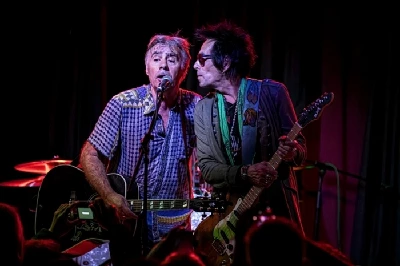
|
| Glen Matlock speaks to Andrew Twambley about the Sex Pistols, the Rich Kids, his solo career and his forthcoming UK tour with David Bowie guitarist Earl Slick. |
| Glen Matlock: Interview (2018) |
| Glen Matlock: Interview (2016) |
| John Lydon: Interview (2016) |
Pennyblackmusic Regular Contributors
Adrian Janes
Amanda J. Window
Andrew Twambley
Anthony Dhanendran
Benjamin Howarth
Cila Warncke
Daniel Cressey
Darren Aston
Dastardly
Dave Goodwin
Denzil Watson
Dominic B. Simpson
Eoghan Lyng
Fiona Hutchings
Harry Sherriff
Helen Tipping
Jamie Rowland
John Clarkson
Julie Cruickshank
Kimberly Bright
Lisa Torem
Maarten Schiethart